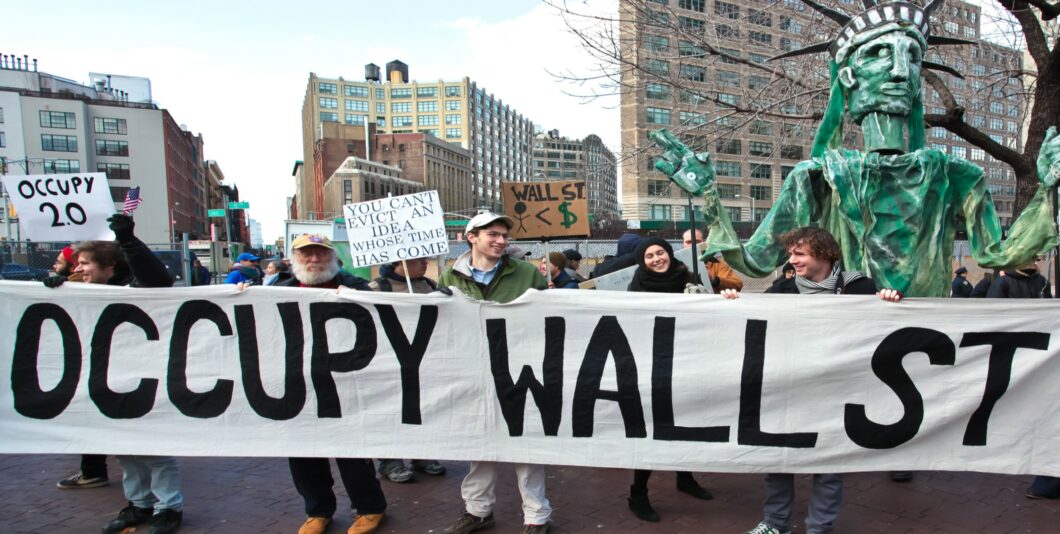Liquidate the Rich?
The left’s opinion of the rich has dramatically changed in the last two decades. Previously, the left may have complained that the rich should pay more in taxes, but they accepted their inevitable presence in a democratic, market society. Indeed, Peter Mandelson, the architect of New Labor in Britain and a key intellectual force of the modern left, proclaimed he had no problem with people getting “filthy rich.” The more wealth they produced the easier it would be to fund the welfare state.
But today, many elements of the left would like to make sure that no one is rich. Movements like Occupy Wall Street blamed the “one percent” for most of society’s ills. Bernie Sanders proclaims that every billionaire is a policy mistake.
Today this sentiment animates policy on the left. For instance, even if recent proposals for wealth taxes would create more costs in administration and lost economic growth than the revenues they bring in, they can still be justified if the rich harm our society and place obstacles to the proper functioning of democracy. The same can be said for attempts to curb the philanthropy of the rich: the curbs may prevent useful donations, but they can be justified by cutting down on the power of the rich. More generally, animus toward the rich often prompts left-wing politics to focus less on eliminating poverty and more on reducing inequality. The former is concerned with improving the lot of the least well-off. The latter with reducing the lot of the best off to make sure the gap between rich and poor is smaller.
In Limitarianism: The Case Against Extreme Wealth, Ingrid Robeyns offers us a comprehensive guide to the arguments for this intellectual shift of the contemporary left. And she leaves no doubt that abolishing the rich is her goal. Politically, she contends that the state should limit individuals to a net worth of 10 million dollars. Ethically, she claims that moral individuals should possess no more than a million dollars’ worth of assets.
Her arguments are not at all convincing, but they are clarifying. While the left’s interest in progressive taxation can be reconciled with a market society, even if it reduces economic growth, proscribing wealth would lead to a society with little or no growth. While the left’s interest in creating more equality of opportunity can be reconciled with liberalism’s priority on human autonomy, Robeyns’ contentions are deeply illiberal and depend on her own unimaginative prescriptions for human flourishing. Unfortunately, given the prevalence of the swing against the rich, friends of liberty will hear more such arguments and need to be prepared to refute them.
Make-Weight Arguments
Rather than develop a strong argument for its conclusion, Limitarianism piles up many weak ones, as if listing more of them makes the overall case stronger. But even crediting their factual premises, some of her arguments do not add any ballast for her radical conclusions. Robeyns argues that some of the rich have attained their wealth illegally or immorally and she offers a few examples of wealthy miscreants. Such anecdotes do not begin to validate Pierre-Joseph Proudhon’s more sweeping claim that behind every fortune there is a great crime. Tax evasion may call for better legal enforcement of tax collection, but it does not justify the elimination of the rich any more than stealing justifies the elimination of private property.
Robeyns also observes the rich use more energy, thus contributing to climate change. The first part of that is true, but Robeyns does not show that consumption by the one percent as opposed to industrial consumption contributes inordinately to the creation of greenhouse gases. Even if it were substantial, governments could impose a progressive consumption tax, reducing energy use by the rich. Characteristically, Robeyns also does not consider the other side of the ledger—how the rich help with the problem of climate change by creating new technologies through innovation and investment. By making Teslas—electric vehicles that consumers actually like—Elon Musk has drastically reduced carbon emissions, probably by more than the total personal emissions of the one percent.
The Danger to Democracy
Robeyns’ more serious argument is that the rich harm democracy by wielding influence disproportionate to their numbers. But some of her contentions betray a naivete about political economy. For instance, she is concerned that corporations spend an enormous amount of money lobbying legislatures for special favors. But such lobbying reflects the well-known power of special interests in a democracy rather than that of the wealthy. Corporations—singly or in association with others in their industry—have the mechanisms to use their substantial resources for lobbying. They would do so whether their shareholders were mostly a few rich people or pension funds whose beneficiaries possess only modest means. Lobbying for favorable treatment is their fiduciary duty. Political scientists have shown that such concentrated groups, which include unions as well as trade associations, systematically have more influence than diffuse groups, like taxpayers and consumers. But contributions by the rich often help equal the playing field. For instance, they and their foundations are the major contributors to environmental groups.
Robeyns is proud of being an academic who lives modestly and looks down on those with different ambitions.
Robeyns is at least on stronger factual ground when she suggests that the rich have the means to wield more influence than the average citizen. But modern democracies are representative democracies. They are not and cannot be premised on the notion that all citizens have equal influence, because representatives can decide what information is useful to them. Everyone emphatically does not have equally useful opinions about the consequences of legislation. In a modern economy, the rich are likely to understand better how the economy works—including the effects of regulations and taxation—because they are active entrepreneurs and early investors. Robeyns quotes a study by a professor at my own university that suggests that representatives tend to follow the economic views of the rich more than other voters. But that is as it should be if the rich have a better sense of the consequences of economic policies. The same study, for instance, shows that the rich have a substantially more accurate assessment of tax rates. Good tax policy depends on knowledge of basic facts.
And even insofar as the rich have more influence because of their position, it does not follow that their influence moves democracy away from the median voter, without considering other groups that have more influence because of their position. In any nation with freedom of speech, members of many different groups will have greater influence than the average citizen. In particular, those who write about political and social issues for a living and those who educate the next generation on these issues also wield substantially more influence. And these groups are far more ideologically homogeneous than the rich, leaning to the left in the United States by margins of 10 to one. Robeyns never considers whether the rich provide a counterweight to other disproportionate ideological influences or whether an understanding of business furnishes a useful corrective to speculative theories of journalists or academics who do not have to meet a payroll.
Capitalism without Capitalists and Philanthropy without Philanthropists?
While Robeyns spills much ink on the costs of the rich, she is not very interested in trying to assess the benefits they may provide. How will capitalism fare without any substantial capitalists? Rich entrepreneurs take risks on innovations that benefit us all. Rich investors can afford to invest in long shots through venture capital to create the ecosystem for these innovations.
Robeyns appears to think “intrinsic motivations” rather than external rewards will be enough to keep the economy humming but she provides no evidence for this. Intrinsic motivation has not permitted even small-scale socialist experiments to endure. Even the higher tax rates in Europe that are far lower than what would be necessary to eliminate the rich—depress the levels of work and innovation there compared to the United States.
At times, Robeyns seems hostile to capitalism itself, but she does not contend with the enormous evidence that only market economies have proven themselves capable of lifting the masses of people out of poverty. Given non-market social hierarchies, inequality was not lower before the market revolutions of the eighteenth century. There was greater shared poverty, to be sure, but that kind of sharing hardly seems ideal.
Some of her comments on wealth and philanthropy are obtuse. She argues we want to have great art in museums, not in private collections. But much of the great art in museums is there because the rich donated it. There is a virtuous circle where the rich are the prospectors for great art and the best that they buy then becomes available to all in later generations as they or their heirs endow museums. It is likely that fewer great works of art will be created without wealthy patrons and buyers. Or does Robeyns think that committees of bureaucrats using money that is not their own will choose as well?
She does concede that sometimes the rich may, through their own private donations, address a social problem that government cannot. Voters are often parochial and short-sighted. Still, she complains that the ability to donate gives them too much power. She cannot have it both ways. The reason that the rich have that ability and the capacity to act as a catalyst for causes, like civil rights or protection of the environment, is that they are not subject to democratic control and have the substantial resources to get around collective action problems. And they or their foundations cannot perform these functions well unless they have more than 10 million dollars in assets.
The most striking feature of the book is its censorious illiberalism. Robeyns is proud of being an academic who lives modestly and looks down on those with different ambitions. She says that it is “absurd to buy Twitter or develop space-tourism.” But Elon Musk bought Twitter for a serious purpose: he thought it would help the free speech and free inquiry of his fellow citizens. Jeff Bezos hopes to democratize space travel, allowing more people to see the earth from above—a transformative experience according to the few astronauts who have done it.
These projects are not only developments advancing their own personal autonomy—an important liberal value in itself—but they promote liberal projects. Liberalism depends on institutions, including those for free speech and inquiry. Liberalism is also a project for freeing man from the physical constraints of nature. The personal autonomy of those with resources often advances the infrastructure and culture of liberalism that protects the personal autonomy of others who are not as well off. The dynamism of liberalism is its best defense. Robeyns, by contrast, wants to decree an end-state of society—a Procrustean bed of greater equality—that is aligned with her own projects but inimical to those of others. It is fine for her to be content with bicycling through Holland’s countryside, but it is politically and morally wrong—and against all the evidence about human flourishing—to prevent others from reaching for the stars.



